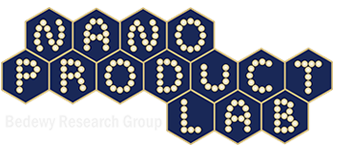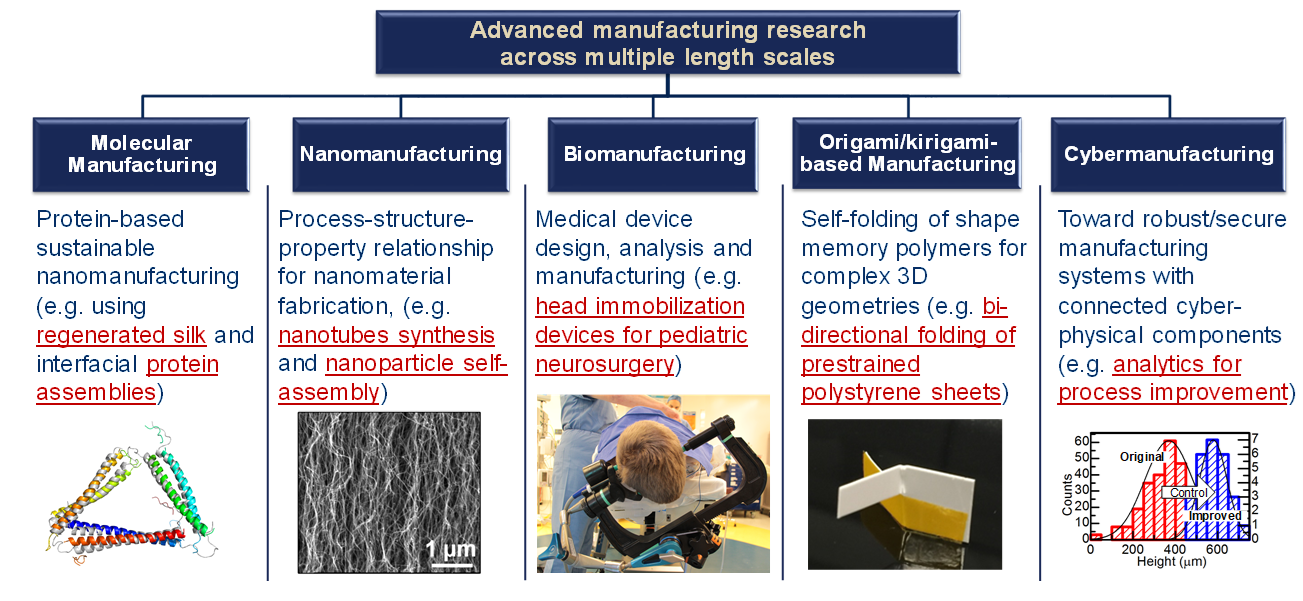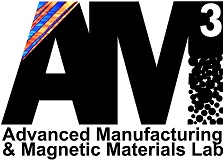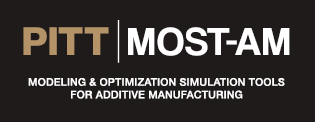Energy & Sustainability
It is the goal of our energy departments to increase the generation of electric power from renewable sources such as solar power. Through our research we can increase renewable power generation, accelerate the development and adoption of sustainable transportation technologies, and stimulate the growth of a thriving domestic clean energy manufacturing industry by reducing life-cycle energy consumption.
HENG BAN
Professor Ban's research covers topics in thermal-fluid sciences, materials and energy sciences. His recent focus has been to understand the relationship between material microstructural change and its thermal performance, particularly experimental and computational material thermophysical properties and measurement technique development. The research has applications in nuclear fuels and materials, micro-scale measurements, and hot-cell and/or in-pile sensors and instrumentations. My group also conduct integral and separate effect experiments and modeling for fuel performance and safety assessment.
Material Microstructural Change and Thermophysical Property: Irradiation-caused damage to the microstructure of materials has a significant impact on their thermal properties, especially thermal conductivity.
Measurement Science and Technology: Advanced measurement capabilities are essential for creation of new pathways for discovery and innovation. My lab has been developing new measurement techniques for thermophysical properties. These techniques include nano- and micro-scale thermal characterization methods, bench scale techniques, and in-pile sensors and instrumentations.
Transient Fuel Performance: Transient fuel performance plays a key role in safety assessment of design-based accidents for nuclear reactors. Fuel transients involve multiple physical processes, such as fuel fracturing and fragmentation, gap conductance, clad ballooning and rupture, and coolant (water) phase change and transient boiling.
ERIC BECKMAN

Dr. Beckman's research group examines the use of molecular design to solve problems in green product formulation and in the design of materials for use in tissue engineering. He has published over 175 papers and has received more than 40 US patents
MOSTAFA BEDEWY

In the NanoProduct Lab (Bedewy Research Group), we leverage precision engineering, biomimetic/bio-inspired designs, and quantitative tools to tackle fundamental research questions at the interface between nanoscience, biotechnology, and manufacturing engineering. Bridging the gap between promising proof-of-concept results (in lab-scale environment) and mass-produced products (in industry), our work aims at creating novel solutions that impact major societal challenges in areas related to energy, healthcare, and the environment.

mbedewy@pitt.edu
http://nanoproductlab.org/
KEVIN CHEN
Dr. Kevin Chen's research focuses on scalable 3D laser manufacturing from nanoscale to macroscale. Sensor fused additive manufacturing.
MARKUS CHMIELUS

The Chmielus Advanced Manufacturing & Magnetic Materials Lab (AM³, www.chmieluslab.org) is focused on the influences and relationship of composition, impurities, manufacturing, and processing parameters on the microstructure and properties of structural and multifunctional metals in bulk, foam, thin films, and single crystalline form with a focus on 3D structures produced by additive manufacturing.
In additive manufacturing, we work on identifying the effects of powder properties, printing and processing parameters on green and further processed (e.g. sintering and aging) samples’ microstructure, porosity, residual stresses, mechanical, fatigue and multifunctional properties. We focus on all aspects of binder jet 3D printing and sintering but also use direct energy deposition, and selective laser melting/sintering and built custom-made printers for very small print volumes and magnetic materials. We have expertise working with a large variety of materials including Ni-based, Ti-, Cr-Co-alloys and other biocompatible materials, steels, carbides, multifunctional Heusler alloys.
The main focuses of this research group in functional materials is in ferromagnetic shape-memory alloys, high temperature shape memory, and magnetocaloric materials. We are mostly interested in microstructure, phase transformations, mechanical, thermal, magnetic properties.
In metal thin films and coatings, we are mostly interested in the effects of impurities and processing parameters on as-deposited films, but also phase-transformations, texture transformations and final properties, including resistivity, magnetization, texture, and mechanical properties. Furthermore, we investigate stresses during deposition and cycling.
www.chmieluslab.org/
chmielus@pitt.edu
MINKING CHYU
Utilizing advanced manufacturing technologies in developing novel materials and coating techniques for thermal protection and cooling of hot sections in aeroengine and power generation turbines. More effective thermal protection and cooling design lead to an increased cycle efficiency and less fuel consumption.
C. ISAAC GARCIA
Alloy design, thermomechanical processing, transformation and precipitation studies. Microstructural-Properties Optimization. Non-Destructive Testing (UT and EMAT techniques). Computer simulations and physical simulations (CAL and BA simulators).
BRANDON GRAINGER

AMPED Consortium
AMPED Consortium
Consortium Mission: To develop an innovation ecosystem and educational programs for advancing soft magnetic materials and component technologies spanning fundamental science to end-use application in collaboration with various offices and programs. Consortium Goals:
1) To play a leadership role in providing highly qualified talent to the burgeoning soft magnetics industry and the electric power industry more broadly.
2) To serve as the primary convener for a unique and much needed university / industry / national lab community.
3) To become the premier source of university technical support to industry (papers, patents, direct research support).
Pitt Energy GRID Institute
GRID Institute
The University of Pittsburgh’s Energy GRID Institute, newly established to leverage public and private partnerships with state-of-the-art laboratories and facilities, is a comprehensive international solution center for the entire electric power industry, located in downtown Pittsburgh at the Energy Innovation Center. The laboratory was nationally benchmarked to create academia's most advanced electric power utility scale research entity. The lab focuses on advancing modern power systems, integrating distributed generation sources into AC (13.8 kV, 4.16 kV, 480 V, 208 V) and DC (1.5 kV, 380 V) microgrids in order to demonstrate and study novel power products, as well as monitoring, control and protection systems.
Pitt Center for Energy
Center for Energy
The University of Pittsburgh’s Center for Energy is a university-wide endeavor that leverages the energy-related expertise of approximately 100 faculty members across campus from multiple disciplines and departments among the Swanson School of Engineering, Dietrich School of Arts and Sciences, Law School, Business School and the Graduate School of Public and International Affairs. Established in 2008, the Center is a unifying entity for faculty members to collaborate with each other, regional energy industry leaders, government agencies, and the community to address the many challenges and opportunities associated with the generation, transmission, and utilization of energy.
PRASHANT KUMTA
Work in Professor Prashant N. Kumta’s laboratory focuses on innovative synthesis, fabrication and additive manufacturing of novel materials and architectures for energy and biotechnologies. Specifically, research is directed at fundamental characterization and obtaining a scientific understanding of structure and property relationships of novel materials and platforms for batteries, fuel cells, electrocatalysts, photoelectrocatalysts, degradable scaffolds, functionalization of scaffolds for tissue regeneration, drug and protein delivery, non-viral gene delivery, as well as embryonic stem cell differentiation.
SANGYEOP LEE
Dr. Sangyeop Lee as studied nano-to-microscale thermal transport using theory and simulation. Current focus is on the thermal transport during phase transition.
PAUL LEU

Dr. Paul W. Leu’s research group focuses on combining simulations and experiments to discover and evaluate new advanced materials for optoelectronic devices and antibacterial surfaces. His lab simulates and fabricates various nanomaterials, such as metal nanomeshes, nanosphere coatings, nano-structured hazy glass, nanowires, and nanoholes for applications such as solar cells. His re-search seeks to understand the various process—structure—property relationships of these nano-materials to enable functionalities such as nanophotonic light scattering, plasmonic light trapping, antireflection, self-cleaning, and high durability.
LAMP has worked with various researchers at UPMC to evaluate new nanostructured surfaces for anti-biofouling (preventing adhesion), antibactericidal (killing bacteria), self-cleaning, and durability properties. The lab is determining how various mechanisms such as surface energy, topography, surface chemistry may contribute to these antibacterial properties.
Paul Leu is also the Pitt director of the MDS-Rely, an NSF IUCRC that is currently in the planning phase. The goal of MDS-Rely is to apply data science-informed research to better understand the reliability and performance lifetime of essential materials. It has the potential to transform this field in creating new technologies that enable unprecedented lifetimes, durability in extreme environments, and understanding of various degradation and failure mechanisms.
www.pitt.edu/~pleu/Research/index.html
http://mds-rely.org/
pleu@pitt.edu
PAUL OHODNICKI

Consortium Mission: To develop an innovation ecosystem and educational programs for advancing soft magnetic materials and component technologies spanning fundamental science to end-use application in collaboration with various offices and programs.
Consortium Goals:
1) To play a leadership role in providing highly qualified talent to the burgeoning soft magnetics industry and the electric power industry more broadly.
2) To serve as the primary convener for a unique and much needed university / industry / national lab community.
3) To become the premier source of university technical support to industry (papers, patents, direct research support).
RAVI SHANKAR
![]()
Our research focuses on understanding the behavior of materials over length-scales ranging from the macro to the nano, as a function of composition, thermomechanical history and microstructural design. Research interests include thermal and mechanical behavior of nanocrystalline metals and amorphous alloys, mechanics and property evolution in nano and micro-manufacturing processes and design of multi-functional materials.
Multifunctional Nanograined Materials: We are studying how nano-scale grain structures can demonstrate novel functional properties that accompany their enhanced mechanical properties. We are examining scalable approaches for creating such microstructures at surfaces and in bulk-forms in Al, Mg and Ti alloys and their technological implications for structural and biomedical applications.
Direct Transduction of Photonic Energy into Mechanical Work: Azobenzene-functionalized polymers can transduce light directly into mechanical work either via trans-cis isomerization or via the trans-cis-trans reorientation of the azo groups. We are examining approaches centered on design of novel compositions and mechanical designs for enhancing the efficiency of this transduction and maximizing the achievable power densities.
Hierarchical Nanostructured Surfaces: Surfaces with hierarchies composed of nano-scale structures on micro-scale features endow novel functionalities in several instructive illustrations from the natural world. We are working on new direct-write approaches for the scalable manufacture of such complex hierarchies in polymeric materials for engineering applications.
Mechanics of Deformations at the Micro-Scale: Understanding the implications of the stochasticity, size-effects and constitutive properties of deformation of metals at the micrometer and sub-micrometer length-scales is critical for controlling process and product outcomes in mechanical microforming. We are working on new experimental paradigms for exploring the mechanics of deformation and microstructural consequences in microdeformation configurations using a custom-designed platform that can perform multiaxial manipulation inside an electron microscope.
ALBERT TO

Dr. Albert To’s expertise is in computational mechanics, topology optimization, and multiscale methods for advanced manufacturing. His current research activities include fast process modeling, process-microstructure-process relationship, support structure optimization, and cooling channel design for laser-based metal additive manufacturing.
The primary research interests of MOST-AM are in design optimization for additive manufacturing (AM), computational mechanics, and multiscale methods. Currently, his group is actively working on developing the "Lattice Structure Design Optimization" software for generating optimal lightweight and multi-physics design for AM. Ongoing research activities also include process-microstructure-property relationship of AM metals and support structure design optimization for AM.
Design and Optimization for Additive Manufacturing: The goal of this project is to develop robust software for design and optimization of additive manufactured (AM) structural designs based on cellular structures. The key innovation in this technology is the utilization of micromechanics models for capturing the effective behavior of cellular structures in finite element analysis (FEA). This will enable solving topology optimization problems via FEA much more efficiently. The computational tools developed will help cut time in design phase, lower manufacturing cost, and reduce time to market for new AM structural product development.
www.engineering.pitt.edu/mostam/
albertto@pitt.edu
GUOFENG WANG
Dr. Guofeng Wang's research is to develop and apply Integrated Computational Materials Engineering (ICME) methods for certification of advanced manufacturing techniques.
JORG WIEZOREK
Dr. Wiezorek’s group performs physical metallurgy related research on the characterization, design and engineering of microstructures to understand, optimize and enhance the properties of primarily metal based material, such as Al-, Mg-, Ti-, Ni-, Fe-alloys and intermetallics, for both structural and functional applications. The research utilizes expert application of electron-, ion- and photon-beam based analyses, such as scanning and transmission electron microscopy as well as X-ray diffraction methods, and processing by plastic deformation, thermo-mechanical and continuous wave and pulsed laser-based processing of bulk and thin film materials to elucidate processing-microstructure-property relationships, resulting in tailoring of the processing paths for enhanced performance in the envisaged application environments.
WEI XIONG

Researchers at the PMMD (Physical Metallurgy and Materials Design) Lab are working on alloy development and processing design based on fundamentals of materials thermodynamics and physical metallurgy. PMMD lab research covers a variety of inorganic materials including but not limited to steels, high entropy alloys, Nickel and Cobalt superalloys, light-weight alloys. One of the core-efforts at PMMD is to perform alloy design and processing optimization for advanced manufacturing. Both experiments and simulation are combined for developing new alloys and optimizing manufacturing processes at the PMMD lab. Regarding simulation, the so-called CALPHAD-based ICME methods (CALPHAD: Calculation of Phase Diagrams, ICME: Integrated Computational Materials Engineering) are applied to understand the mechanism of process-structure-property relation in different alloy systems and their processing. The experimental techniques cover thermal analysis, microstructure characterization, mechanical property measurements, thermal analysis, and alloy manufacturing such as casting and additive manufacturing. The PMMD lab performs materials manufacturing using a systems design approach to develop new materials to further increase the efficiency of advanced manufacturing of high-performance materials.
https://wxiong.weebly.com/
weixiong@pitt.edu